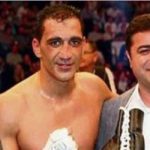By Nurcan Baysal
I am in Silopi, a district of Şırnak on Turkey’s border with Iraq and Syria. I enter a poverty-stricken home in Karşıyaka Neighborhood. Beds have been stacked in a corner of the room, and an electric heater provides warmth. On the wall hangs the photograph of a small child. His name is Mehmet, Mehmet Mete.
I sit down with the mother and the father. The father used to be a truck driver, but like many truck drivers in Silopi today, he is unemployed. A short while later, a girl with braided hair and large black eyes comes in, returning home from school. She is Mehmet’s twin, Mercan.
Their mother brings me Mehmet’s picture and hands it to me. With protest in her voice, she begins to tell his story: “My Mehmet was so young when he died. His voice was never heard.”
I am writing this on the request of the mother, to ensure that though it should have been heard long ago, Mehmet’s voice is finally heard.
The date was Dec. 21, 2015. The government had imposed an indefinite 24-hour curfew in Silopi on Dec.14 in response to clashes between the Turkish government and the Kurdistan Workers’ Party (PKK). Mehmet’s father, who was working as a truck driver at the time, had been in Iraq since the curfew began. The mother was alone with their four children in their home in Karşıyaka.
The increasing sounds of gunfire and bombs scared the family, and they decided to go to Mehmet’s uncle’s house. He lived across the street, just below the neighbourhood mosque, and they thought his house would be safer for them.
It was Mehmet’s birthday. He was going to turn 11. He was lying on the sofa they used as a bed, but he was still awake. His two sisters were awake next to him. The mother was preparing the dining table for their meal away from home. All of a sudden, as Mehmet was lying in bed, a piece of shrapnel hit him on the head. It took off half of Mehmet’s face. The mother, the children, everyone began to scream.
Mehmet died there that day. The mother repeatedly called the police and the hospital to send an ambulance, but the ambulance never came. Amidst the flying bullets, with the neighbours’ help, Mehmet’s body was taken to the empty mosque nearby and left on a stone.
Mehmet’s lifeless body stayed there for two weeks. The mother cries as she recounts, “no matter what we did they would not send us an ambulance.” Sixteen days later the police took Mehmet’s body from the mosque to Şırnak. After searching for his body for a long time, the family learned that it was in a morgue.
Seven days later, without informing the family, officials buried Mehmet. 23 days after he died, Mehmet was laid to rest. Without giving his loved ones a chance to say goodbye…
After Mehmet’s death, the police came to the house one day. The mother describes the day to me:
“The police came once. They asked how Mehmet was killed. I told them that they had killed Mehmet. They responded that the PKK had killed Mehmet, not them. I insisted that it was the police who had killed him.
The PKK didn’t have tanks or cannons. They didn’t attack us with tanks or cannons. The police were the ones with tanks and cannons. We are civilians, we aren’t the PKK. The war happened around us. Mehmet was killed in his bed. Even if they sentence me to 1000 years in prison, I will continue to insist on this.”
The family tried to sue the government, but their case was rejected.
Mehmet’s family was isolated after his death. “Even our neighbours did not ask how we were doing. Mehmet’s death did not make the news. No one reached out with condolences. No one heard us,” the homesick mother tells us.
I ask her if there is anything I can do for her. She responds:
“Mehmet was killed in his bed. He was 10 years old. This murder should not be forgotten. My son’s death should not be lost. The world needs to know. A 10-year-old child was killed in his bed. Do not let our case be forgotten, because I am still of grief.”
As I listen to this homesick mother, I am overcome with grief too. I had not heard of Mehmet, or of many other deaths in Silopi.
This piece is for the homesick mother, for Mehmet, for all of the children that were murdered in their beds.
This is to ensure they are not lost…
Source: Ahval News



